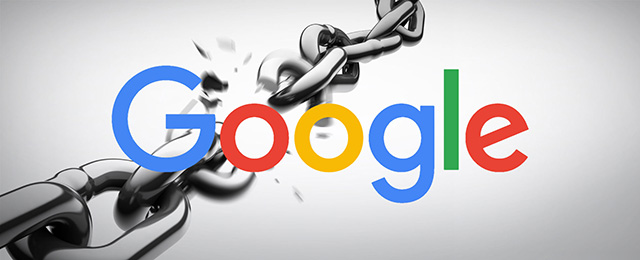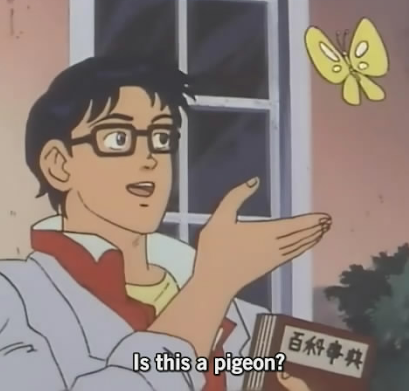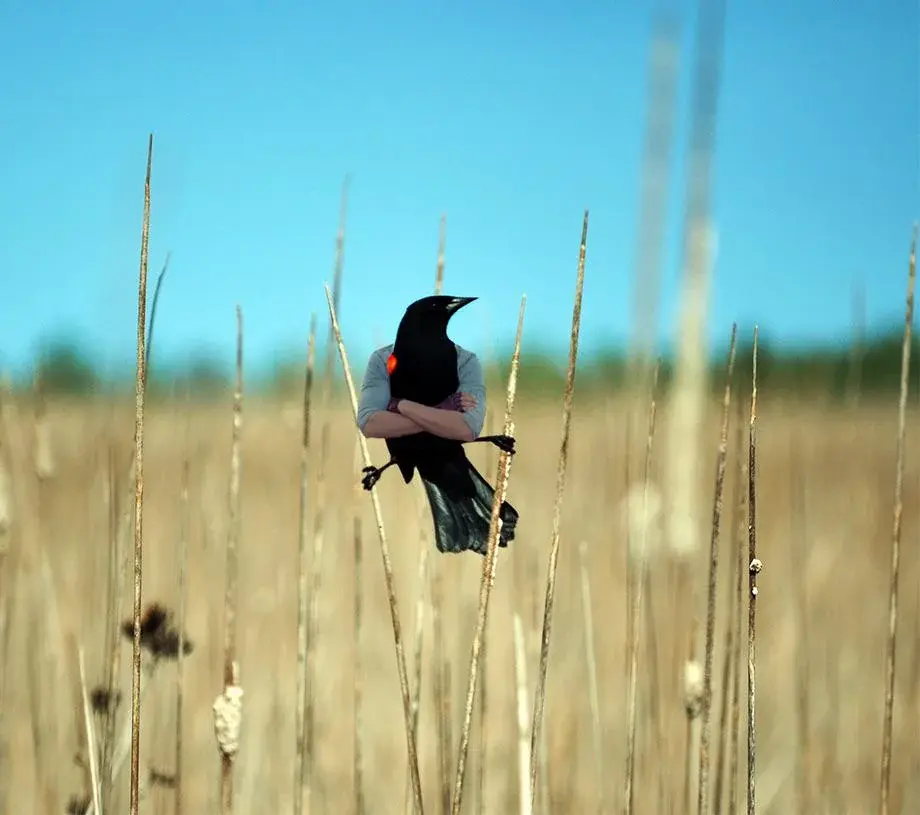- cross-posted to:
- [email protected]
- cross-posted to:
- [email protected]
I still miss Google Reader
And the internet as a whole moving away from RSS feeds in general is also not helpful
The crazy thing is, they had a nascent social network going with Google Reader, populated by people who were engaged and interested in the content. And they threw it all away to chase a Facebook clone, which was doomed anyway.
They could’ve had basically Reddit if they added a way to have comments in Google reader. Then again, they would’ve never invested in moderation, so it probably would’ve turned into a shitheap.
they would’ve never invested in moderation, so it probably would’ve turned into a shitheap.
i.e., basically Reddit!
Reddit tricked their own users into doing the moderating, that was their great innovation.
Google+ could have been successful to a degree, in terms of features it was an improvement over Facebook in several ways. The problem was the invite only launch.
The invite period worked for Gmail because it was still interoperable with other email services, and made getting a Gmail address seem exclusive and desirable. Making a walled garden social network invite only, however, just lead to it being empty. Most who did sign up looked around for a few minutes then went back to Facebook.
They just seem to make wacky brain-dead decisions all the time and nobody really understands why they make the decisions they do.
They only thought they moved away from RSS feeds. A whole bunch of the internet is built on Wordpress which publishes an RSS feed by default at website.url/rss or website.url/feed. Which means a shitload of sites are running feeds even if they don’t advertise it (or realize it).
Most good podcasts offer an RSS feed too.
Podcasts by definition are all RSS based, but Spotify, Amazon and other VC based distributors are trying to change that with subscription and exclusive content.
Even those are still announced via RSS I believe though.
Removed by mod
True. But they did make it more difficult to discover RSS feeds by removing all those features.
The end of reader got me started on reddit .
Got me started on Feedly. Still haven’t left, although I’d be surprised if I still had more than a couple of the same feeds from then.
Honestly, yeah I think that’s how it worked for me too. Reddit wasn’t exactly the same, but depending on how you curated your subreddits, it could fill a similar role.
I just went back to RSS after some years and it’s just as good as I remember it.
And it’s way better than social media
Preach it, brother.
I dont know anything about RSS, it worth it to learn and set my own?
Yeah just signup at Feedly and you’ll have no trouble
How do you get your RSS content?
RIP Aaron Swartz
He was the main draw of Reddit and it hasn’t been nearly as useful for political activism since he left us.
Thankfully all the sites I follow still publish their RSS feeds. I fear the day when they start dropping off.
Many popular sites have dropped it. New sites often don’t support it in the first place. In cases they do, it’s a truncated version. Only a snippet/topic is visible and rest relinks to a browser. It is still better than nothing but the halcyon days of RSS are gone, IMO.
The truncated versions are annoying, but honestly I understand why. These websites live entirely off ad sales, without them they go bankrupt. So letting RSS readers scrape an ad-free version of an article makes no sense to them.
I’ve been using RSS for literally 18 years and that has always been the case. News sites make money by advertising, they get no advertising if you just read the RSS feed, so they give you a snippet.
It would be nice if every site was like Arstechnica and gave you a full text ad free RSS feed when you pay to subscribe.
The difficulties in monetisation is what had been slowly killing RSS support on websites. There have been services that have tried to solve this problem, one is mentioned in the article, but they don’t seem to have had wide adoption.
It’s not just inserting ads either, today it’s also the pervasive tracking that makes money.
RSS was great for things like personal blogs, but commercial sites came to see little value in it, and have been dropping it as a result.
Why not? That’s based on the current system of websites loading in third party ad providers. If you include the ads in the article/have sponsors etc. they will come through the rss.
It’s not perfect, but newsletters are making do it with just fine. I read a couple newsletters with them but make no effort to remove them like I do with web articles, because they are not disruptive, inappropriate, heavy or privacy invasive.
For me, that already happened.
I had planned a train trip that started to seem pretty unlikely when the relevant union started talking about a strike. I needed to check the union’s site every day to see how the negotiations were going. Doing that through RSS would have been nice, but the site didn’t support it and none of the apps I tried were able to help me either. Do I need to craft my own webscraping code and make a cron job to run it every hour?
i miss reading quality cracked articles on rss. there isn’t really any article-length comedy anymore anywhere is there. it’s all dry stuff or deranged opinions
I used Google Reader and I still use Feedly on a daily basis and I have no trouble saying unequivocally that this is a trash article not worth posting.
It’s just bringing up a bunch of unrelated decisions, mostly made over 10 years ago, strung together to try and make it seem like Google is EEEing RSS, when the reality is that the various people who have made decisions across the different divisions of Google are all just unintentionally deprioeitizimg RSS because the alternatives have more sticking power.
Yeah google didnt help of course, but the internet as a whole pivoted from RSS. It still very much exists today and you have user friendly easy ones like feedly still out there in spite of the pivot, but the inability of RSS to go mainstream is more the result of how social media and apps dominate the modern web
For many people, they essentially replaced or supplemented their RSS feeds with Reddit and now Lemmy. RSS nailed the technical challenge of publishing news sources, but people often don’t just want to read the news, they want to talk about it and critique it etc.
Feedly picked up where reader left off and is now way better than reader ever was.
Ooo. I moved to The Old Reader when Google closed theirs. Haven’t considered changing since then.
“deprioritizing” does not explain all of the mentioned decisions. Plus there are still many cases for which there are no alternatives that work similarly. The article is factual and google has plenty of incentive to kill open standards like rss
“deprioritizing” does not explain all of the mentioned decisions.
Which ones doesn’t it?
Plus there are still many cases for which there are no alternatives that work similarly.
Yeah, they’re not making decisions on what best suits the end user, they’re making decisions based on what makes them the most money.
The article is factual
Here is an alternative Piped link(s):
Piped is a privacy-respecting open-source alternative frontend to YouTube.
I’m open-source; check me out at GitHub.
I still (and love) use my RSS Feed Reader as my primary way to ‘consume’ the content in Internet, for both mobile and desktop, i use commafeed.com
Firefox has also had issues in this regard.
“Firefox’s built-in support for web feeds and Live Bookmarks was removed with the release of Firefox version 64 in December 2018.”
https://support.mozilla.org/en-US/kb/feed-reader-replacements-firefox
They pushed “Pocket” over RSS.
Now they’re depreciating the Mac pocket app and it’s clearly not going to do well in the future.
5 years of moving people away from RSS to another service, to then start to depreciate that service.
5 years from the major redesign of google reader from 2008 to 2013 and closing it down.
My lesson. Expect to change your software for the web every 4 years or so. If it lasts longer it’s a bonus. But chances are if you make the effort to move to the best (and most recently developed) candidate every 4 years you’ll be in a good place.
You know when software gets stale, you know when there are better options, use them.
Sometimes your current choice gets a new round of development, sometimes it goes stale.
I switched over to Livemarks which has provided an almost drop-in replacement. Looking at the low number of users of this extension, it makes sense they would stop supporting it to reduce maintenance cost.
Absolutely. The reason these things don’t last is because it’s not worth the investment to redevelop and maintain.
I’m just pointing out that’s the reason to move to where there is investment and sustainability in the product.
Firefox cut funding for maintaining an option due to low usage. Speculative investment in a replacement fell flat.
Google cuts investment for the same reasons and that happens often. They speculate on a new product then cut it if it doesn’t work out for them.
Neither company doing this is a bad thing.
The problem most people have is they are late to move to a mature product, which then having reached maturity is assessed as either a success or failure. Then due to low usage it’s cut.
Then they’re looking for the next mature product. Again ignoring sustainability. Which is then also cut.
Typical Google: ‘everything needs to constantly change for nothing to evolve at all’
I get my news with Feeder on my phone. RSS is alive and well in this house.
Let’s be honest RSS wouldn’t live anyway… Like the only pages that would provide it would be the ones that don’t have or have barely any ad and that’s a minority that let’s be honest doesn’t stop them from providing it now.
The rest of pages would either not do it, do a very basic thing with only the title and small description so you have to click it to see the article or just find a way to add ads and tracking to it. Because they want/need you to watch ads, sell your data with tracking and all that.
Personally as an RSS user I dont even want or need it to send me the article. I almost always just click the link and go to the website directly. I think RSS could still exit as just a link aggregate with a preview. The thing that lead to the decline of RSS is that it was competing with social media and news aggregates like google news.
Setting up your RSS reader takes work. Even the super user friendly ones like feedly still require you to search for different sources that you want to add. In the old school and more pure RSS programs you have to manually find the rss link on a website and add it to your feed.
In a more open optimistic future of the internet this would be the way we get content. Exploring the web and adding it to our list if we want updates o demand. In the actual modern internet addictive monopolistic social media has to cater to algorithms instead or social media engagement(that often doesnt actually read the source).
Google not encouraging and getting rid of its rss content certainly didnt help matters but I think RSS is just a living fossil of a potential evolutionary branch that the internet count grown into but didnt.
So, I in no way want to argue that algorithms are better, as they are often used to manipulate and their design to drive engagement at any cost leads to plenty of their own problems.
That said, I was raised in a pretty strong echo chamber (that a good portion of my family is still firmly in). If I had been solely responsible for curating what content I got via RSS (which I did for a short period in the early 2010s). I never would have been exposed to content that challenged the worldview I was given. Ironically, it ended up being the YouTube algorithm that while it was simultaneously feeding people down the gamergate conspiracy tunnel was opening my eyes to the realities of climate change, making me less bigoted towards LGBTQ people, and helping me find the empathy that I had hidden to fit in with the world around me.
I don’t know what the answer is. On the one hand, I know how bad echo chambers can be, on the other hand, corporations and algorithms manipulate people all the time and shouldn’t be trusted either. I do think RSS had potential to be better than what we have now (where social media sites like Twitter and Digg/Reddit/Lemmy essentially act as everyone’s shared feed reader and end up putting people into new echo chambers), but I think having the chance of seeing content that challenges our worldviews has also been a good thing, that I’m not sure would happen as often if we all only read our personally-curated RSS feeds.
That said algorithms are getting more manipulative, and I may just be a lucky outlier that an algorithm happened to push in a positive direction.
even if it was only title and brief description, I say it’s still a vastly better user experience to have a personally curated list of updates to websites you want to follow than manually going to a dozen homepages and dealing with the awful layouts and disorganization they inevitably have (in addition to ads), many of which don’t even have the option of chronological view.
Just to add, while I don’t think they’re the cause of the decline of RSS on the web, Apple hasn’t entirely helped here either. They did some great work adding RSS support to both their Mail.app client and Safari, only to remove them a few releases later.
The Chief Enshittification Officer got wind of it and put a stop to that real quick
Google wants the internet simplified so they can get it under their control, what else is new? I started learning web design a few years back and this is the kind of shit that makes me suicidal. There’s almost no point when they have such a huge monopoly in the space.
I still use newsboat.
not to sound like a boomer but everytime I have tried to use rss, my searches are always a dead end. It’s one technological impairment i haven’t been able to overcome.
I am afraid this is a uno reverse card: if you were an actual boomer, RSS feeds would be your bread and butter. 🤔 You’ll figure it out, eventually. I’m confident!
@rottenwheel
I knew they did it at the time, but I couldn’t put my finger on any of the patterns. Now all too obvious
























